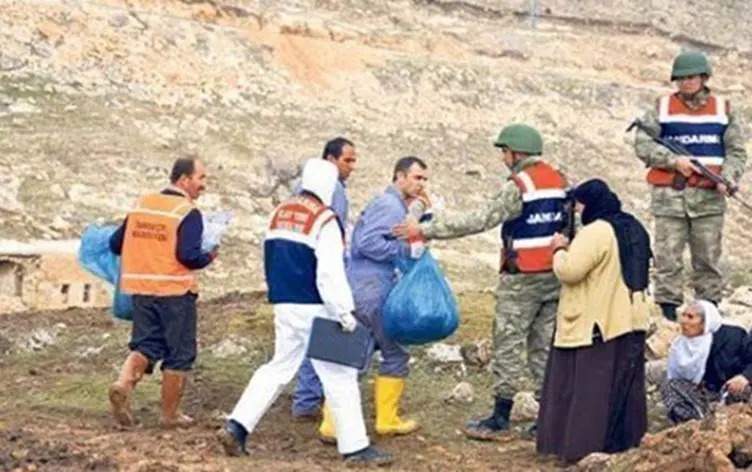Turkey’s Supreme Court of Appeals has ruled to drop the trial of a brigadier general charged with the murder of 11 Kurdish villagers who disappeared in 1993 due to the expiration of the statute of limitations, Deutsche Welle’s Turkish service (DW Türkçe) reported on Wednesday.
On October 20, 1993, 11 villagers disappeared after being taken into custody as part of a military operation led by the Bolu Commando Brigade in the village of Alaca, near Diyarbakır’s Kulp district. Their remains were discovered during excavations conducted in Kulp in November 2004.
In October 2013 the Diyarbakır Chief Public Prosecutor’s Office drafted an indictment against Yavuz Ertürk, who was the commander of the Bolu 2nd Commando Brigade at the time, on various charges including the murder of 11 people, “inciting the public to rebellion” and “forming an organization to commit a crime.”
The Diyarbakır 7th High Criminal Court, which accepted the indictment, transferred the case to Ankara, citing security reasons. During the trial in Ankara, a request to hear the testimony of the soldiers involved in the 1993 operation was rejected because it would not contribute to the trial, according to DW. The General Staff also sent a letter to the Ankara court stating that “no information or documents related to the alleged operation in 1993 were found.”
In September 2018 the court acquitted Ertürk of the charges of murder and “inciting the public to rebellion,” while dropping the other charges due to the expiration of the statute of limitations.
After an Ankara regional court of appeals rejected the objection to this decision, the lawyers brought the case to the Supreme Court of Appeals.
The 1st Chamber of the court on Tuesday overturned the acquittal and ruled for the case to be dropped due to the expiration of the statute of limitations regarding the other two crimes as well.
Batman Bar Association President Erkan Şenses, one of the lawyers in the case, told DW Türkçe that the top court’s decision to drop the case would hinder the punishment of those responsible for human rights violations concerning enforced disappearances, common in Turkey during the 1990s.
Underlining that “crimes against humanity” cannot be subject to the statute of limitations according to fundamental human rights principles, Şenses said it is used as a tool of impunity by the judiciary in cases involving public officials.
He added that the lawyers in the case would file an individual application with the Constitutional Court.

